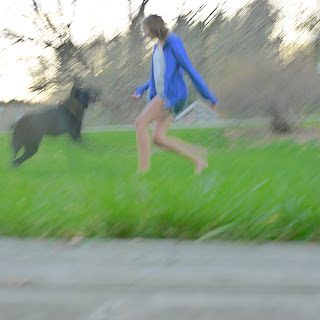Friends...... I have met so many. Some big, some small, even some without legs. One cool ride!
Petunia is my best friend.... she thinks Iris's are stupid! She has been very grumpy lately. When I try and get her to play she bites me in my jowl. It really hurts. Mom says she needs a checkup, that maybe her grumpiness is because she isn't feeling well. I think she was born that way.....
She has also gained some weight. Mom says she gets fat on air. I happen to know she sneaks the cat and my food when no one is looking. I'm scared of her so I don't tell. I try to explain to her that she is decreasing her life span by being overweight. Recent studies show that 30 to 40 percent of U.S. pets are overweight and 25 percent are obese. Obesity is one of the most common medical conditions for dogs and cats. Extra weight stresses legs and feet, and can cause other complications such as diabetes, heart disease and arthritis. Trust me, the last thing anyone in this house wants to do is have to treat Petunia on a daily basis.... grumpy.

Diet is so important for so many reasons. Some breeds of dogs are more prone to bladder stones, because genetically they produce higher levels of the mineral substances and waste products that make up the crystals that ultimately form the stone. Stones (uroliths) are more common in small breed dogs then large breed. this stone was discovered and removed from a very small Yorkshire Terrier, it is HUGE!.

Stones can become so large that they completely fill the bladder. Some common signs of stones in the bladder can be frequent urination (there is no room for urine, it's all STONE), sometimes with blood (the stones irritate the bladder wall rubbing against it), straining to urinate, and general weakness. Diagnosing uroliths involves looking microscopically at a urine sample, identifying crystals and bacteria, radiographs, and even an ultrasound. Treatment involves either a dissolving diet that helps breakdown the stone, or surgery. Stones can come back so the vets will send the stone off for analysis, find out what makes up the stone, then recommend a diet to help prevent them from ever forming again.

Remember, diet is everything! You are what you eat (Petunia!) So many conditions can be prevented by eating the right stuff. This is Foxy, my little buddy. He barks a lot but never tries to bite me. Foxy and I hang alot when his owner is away. I like him. Well enjoy these nice warm days and TaTa for now!














